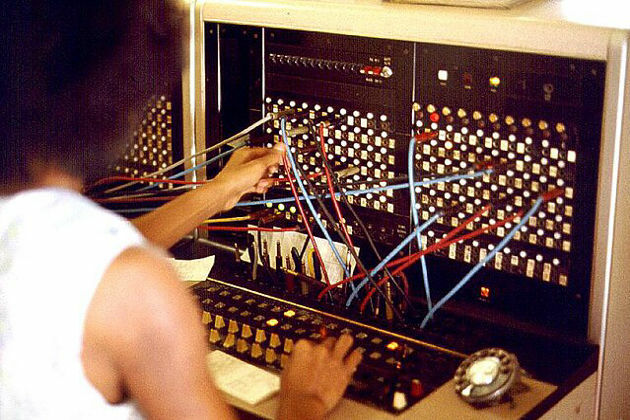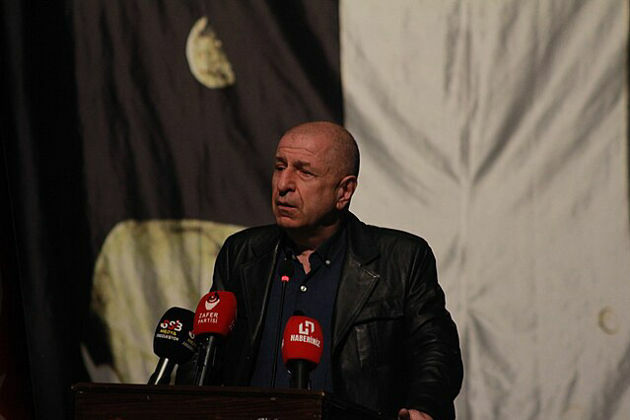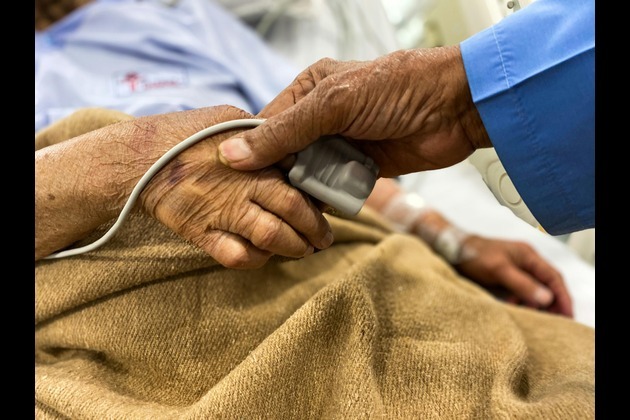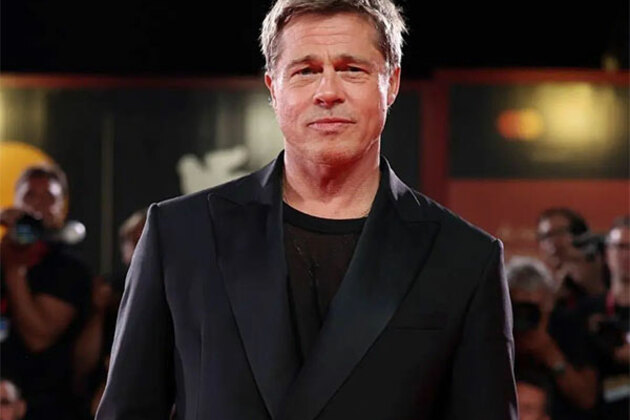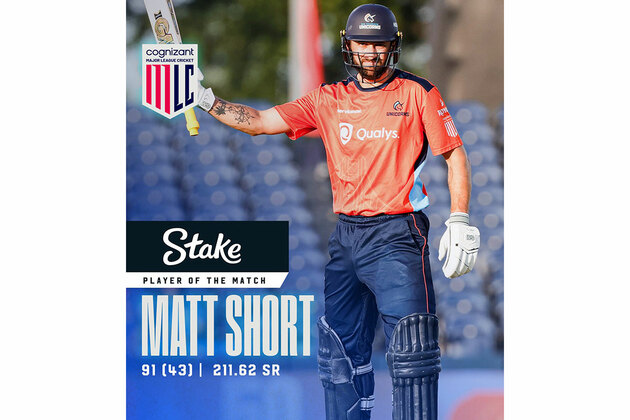USC Researchers new AI implant promises drug-free relief for chronic pain
ANI
24 Jun 2025, 22:44 GMT+10

Washington DC [US], June 24 (ANI): A groundbreaking wireless implant promises real-time, personalised pain relief using AI and ultrasound power, no batteries, no wires, and no opioids. Designed by University of Southern California (USC) and University of California, Los Angeles (UCLA) engineers, it reads brain signals, adapts on the fly, and bends naturally with your spine.
This groundbreaking device, detailed in Nature Electronics, represents a significant leap forward in pain therapy. While current spinal cord stimulators can be unwieldy and are hard-wired to batteries, the new device is designed to bend and twist with movement and is powered by a wearable ultrasound transmitter without the need for a battery.
It also harnesses machine learning algorithms to customise treatment for each patient. The work was led by Zohrab A. Kaprielian Fellow in Engineering Qifa Zhou, who is also a professor of ophthalmology at the Keck School of Medicine of USC.
At the heart of this innovation is its wireless power supply, eliminating the need for bulky batteries and complex wired interfaces that often require repeated surgeries.
The UIWI stimulator receives its energy from an external, wearable ultrasound transmitter (WUT).
Ultrasound offers a safe, effective, non-invasive method for deep-tissue penetration. The device converts mechanical waves into electrical signals through a phenomenon called the piezoelectric effect.
The core of the UIWI stimulator is a miniaturised piezoelectric element made from lead zirconate titanate (PZT), a highly efficient material for converting incoming ultrasound energy into the electrical power needed for stimulation.
'What truly sets this device apart is its wireless, smart and self-adaptive capability for pain management,' Zhou said. 'We believe it offers great potential to replace pharmacological schemes and conventional electrical stimulation approaches, aligning with clinical needs for pain mitigation.'
Ph.D. candidate in the Zhou Lab and lead author Yushun (Sean) Zeng said the wireless smart miniaturized stimulator had the ability to produce sufficient electrical stimulation intensity by using ultrasound energy, resulting in a more personalized, targeted and localized treatment.
'This energy-converting type is critical for deep stimulation, as ultrasound is a non-invasive and highly penetrating energy in clinical and medical areas,' Zeng said.
'By leveraging wireless ultrasonic energy transfer and closed-loop feedback system, this UIWI stimulator removes the necessity for bulky implanted batteries and allows for real-time, precisely adjustable pain modulation,' added Zeng.
'From a clinical standpoint, incorporating deep learning-based pain assessment enables dynamic interpretation and response to fluctuating pain states, which is essential for accommodating patient-specific variability,' added Zhou Lab Ph.D. candidate Chen Gong, also a lead author on the paper.
The system continuously monitors brain recordings, specifically electroencephalogram (EEG) signals, which reflect a patient's pain levels.
Harnessing AI to assess pain levels: A sophisticated machine learning model, based on a neural network called ResNet-18, analyzes these brain signals and classifies pain into three distinct levels: slight pain, moderate pain, and extreme pain.
This AI model boasts a 94.8% overall accuracy in distinguishing between these pain states. Adapting treatment as needed: Once a pain level is identified, the wearable ultrasound transmitter automatically adjusts the acoustic energy it transmits.
The UIWI stimulator can then sense the propagated energy and convert it into electrical intensity, stimulating the spinal cord. This creates a closed-loop system that provides real-time, personalised pain management.
The UIWI stimulator itself is flexible, bendable, and twistable, allowing for optimal placement on the spinal cord. The electrical stimulation it provides to the spinal cord works by rebalancing the signals that transmit and inhibit pain, effectively suppressing the sensation of pain.
Demonstrated Success in the Lab The Zhou Lab team tested the UIWI stimulator in rodent models, with results demonstrating its effectiveness for pain management.
Researchers successfully relieved chronic neuropathic pain caused by both mechanical stimuli (like a pin prick) and acute thermal stimuli (infrared heat).
Lab tests showed that treatment from the UIWI stimulator led to significant reductions in pain indicators. In one experiment to evaluate whether an animal associates an environment with pain relief, rodents showed a clear preference for the chamber where the pain management system was activated, further confirming the device's effectiveness. (ANI)
 Share
Share
 Tweet
Tweet
 Share
Share
 Flip
Flip
 Email
Email
Watch latest videos
Subscribe and Follow
Get a daily dose of Los Angeles Herald news through our daily email, its complimentary and keeps you fully up to date with world and business news as well.
News RELEASES
Publish news of your business, community or sports group, personnel appointments, major event and more by submitting a news release to Los Angeles Herald.
More InformationInternational
SectionTrump goes on social media to announce Israel-Iran ceaeefire
WASHINGTON DC, - U.S. President Donald Trump has claimed a ceasefire has been reached between Israel and Iran. He made the claim on...
Confused bot named Alyssia replaces human response on Iranian phones
DUBAI, U.A.E.: British Iranians living in the U.K. are taken aback when they try to reach their families in Tehran on the phone and...
Brazil’s ex-president accused of leading illegal spy operation
BRASILIA, Brazil: Former Brazilian President Jair Bolsonaro is accused of playing a key role in an illegal surveillance operation orchestrated...
Critics say Özdağ case aims to silence Erdogan opponents
ANKARA, Turkey: A Turkish far-right politician went on trial Wednesday, facing charges of inciting public hatred—an episode critics...
Assisted dying bill clears key hurdle in UK Parliament
LONDON, U.K.: In a landmark moment for Britain, lawmakers in the House of Commons have voted in favour of legalising assisted dying,...
International law no longer a priority among Western leaders
Western support for Israel's right to strike Iran backs up a pattern of pre-emptive violence that critics say is further eroding international...
California
SectionAmazon’s Zoox unveils plan to build 10,000 robotaxis a year
HAYWARD, California: In a significant step toward its commercial debut, Amazon-owned Zoox has unveiled its first factory dedicated...
USC Researchers new AI implant promises drug-free relief for chronic pain
Washington DC [US], June 24 (ANI): A groundbreaking wireless implant promises real-time, personalised pain relief using AI and ultrasound...
Brad Pitt recalls "most unhealthy time" of his life, until David Fincher "reinvigorated" his love of acting with 'Se7en'
Washington DC [US], June 24 (ANI): Hollywood star Brad Pitt recalled 'the most unhealthy time' of his life in 1994, till he got the...
MLC: Seattle Orcas all-rounder Sikandar Raza fined 15% of his match fee
Dallas [US] June 24 (ANI): Sikandar Raza of the Seattle Orcas has been found to have breached the Major League Cricket (MLC) Code of...
San Francisco Unicorns reaches top of table in MLC after defeating MI New York
Dallas [US], June 24 (ANI): After their fourth 200-plus score in five games, San Francisco Unicorns extend their lead at the top of...
Marc Maron's new comedy special to stream in August
Washington DC [US], June 23 (ANI): Actor and musician Marc Maron's new comedy special will be available to stream on HBO Max starting...


